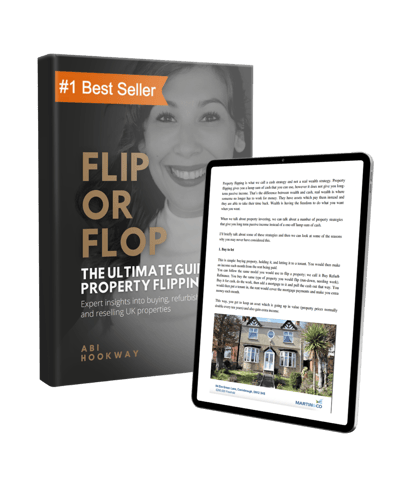Are you looking to invest in real estate but not sure which property investment strategy is the best for your goals? Whether you are a seasoned investor or just beginning, there are several options available when it comes to how you can purchase, manage and profit from properties.
In its most basic form, property investment sounds simple.
To the layman, it only involves two strategies:
1. Renting out a purchased property
2.Selling purchased property for a profit.
However, the reality is much more complex. In actual fact, there are various investment approaches that cater to different individuals with unique goals – including options that don’t involve purchasing the property at all.
It can be overwhelming to navigate the options available.
From buy-and-hold strategies to fix-and-flip strategies, each method has its own unique set of benefits and drawbacks that need to be considered. In this blog post, we will take a look at the different property investment strategies so that you can decide which one is right for you.
Is flipping property profitable?
Having been popularised by television shows like Grand Designs, Homes Under The Hammer and a multitude of George Clarke incarnations, this is probably what most people think of when they hear the term ‘property investment’. This investment strategy generally involves purchasing a property with the intention of renovating it and then selling it for a profit. There are also cases where buyers forego renovation costs, instead opting to purchase low and sell immediately for a higher price. This is a high-risk, high-reward strategy.
Pros of property flipping
- Potential for high profits in a short time.
- Profits in one lump sum.
- Personal growth and building your DIY skills.
- A great sense of accomplishment when it goes well.
Cons of property flipping
- High upfront costs with no income until sold.
- Unexpected structural/renovation issues can cause costs to spiral.
- Intense pressure/stress.
- Delays in completing/selling are costly.
- Profits are heavily reliant on a healthy housing market.
What makes a successful property flipper?
Ultimately, whether or not property flipping is a good investment strategy depends on individual goals, resources, and risk tolerance. Successful flippers typically have an eye for good deals and a strong understanding of the local property market.
It is essential to research and plan carefully and assess potential returns.
To determine the potential profit from flipping a property, use this equation:
Gross profit = Sale price – Purchase price – Costs
Sourcing great value property is essential to maximise gross profit and a fantastic place to do that is at auction. To avoid getting varied away by the excitement of the saleroom and risking ROI by spending more an auction gameplan is essential. If you want to make the best out of your first auction deal and all subsequent purchases, education is vital.
What are the pros and cons of a rental portfolio?
Investing in rental properties offers numerous benefits, making it an ideal investment strategy to consider. One of the most significant advantages is the potential for consistent passive income generated through rent payments. This income can provide financial stability and serve as a solid foundation for long-term wealth creation. Additionally, rental properties tend to appreciate in value over time, providing long-term capital gains for investors. Typically, single residential buy to let is what springs to mind when discussing rental property, however, there are a number of alternatives with varying advantages and disadvantages.
What are the pros and cons of residential buy to let?
Pros of buy to let
- Mortgage costs covered.
- Stable, regular monthly income.
- High demand and low supply = you can charge higher rents. The current average UK rent is £1190.
- Relatively hands off (if you use property management).
- Holding property has long term capital appreciation benefits.
- Insurance products are available to mitigate for damage and potential loss of rent.
Cons of buy to let
- Difficult to release money quickly.
- Potential for long void periods.
- Upkeep costs.
- ‘Anti-Landlord Taxes’ including Section 24 changes have made it difficult to profit as a private individual.
- 97% of private landlords still need to work and the average gross, annual rental income is £15,000 – that’s before tax and other deductions
Buy to let is a highly lucrative strategy when done correctly. Successful buy to let investors have an in depth understanding of the market, diligently select tenants and above all have a solid financial strategy that includes structuring their portfolio effectively for tax efficiency. More information about how to do this can be found on our Limited Company Essentials Course.
Commercial buy to let
Commercial property refers to buildings or land that is used for business purposes. This can include offices, retail spaces, warehouses, and more.
Pros of commercial buy to let
- Increased security from longer-term leases. 3-10 years is not unusual.
- Less competition so can be easier to find tenants.
- Tenants are often responsible for maintenance and insurance – lessening costs for you.
- Considerably lower Stamp Duty Land Tax.
- A variety of capital allowances.
- Can invest with pension.
Cons of commercial buy to let
- Higher initial costs than purchasing residential property.
- Can have long void periods.
- Takes longer to liquify than other assets.
- Commercial properties may come with more legal complexities, including zoning laws and regulations, lease negotiations, and property management issues.
What are the pros of HMO investment properties?
HMO stands for “House in Multiple Occupation.” It is a rental property where three or more unrelated tenants live in the same house and share common facilities.
Pros of HMO investment
- High yields from receiving income from multiple tenants.
- Still receive income from other tenants if a room is vacant or a tenant misses a payment.
- Various tax advantages.
- High demand.
Cons of HMO investment
- Can be hard to get a mortgage.
- Lots of regulations and red tape.
- Limited capital growth.
- More difficult to secure property management.
What are the pros and cons of Serviced Accommodation?
Serviced accommodation is a property that is let out by the night, often for the purpose of holidays or business trips.
Pros of serviced accommodation
- Many tax benefits if done properly.
- Greater flexibility.
- Much higher rental yields, particularly in popular tourist destinations or business hubs.
- Minimal landlord responsibilities if taken care of by a property management company/platform.
- Payments are taken upfront for stays.
Cons of serviced accommodation
- High competition with the prevalence of platforms like Air Bnb.
- Seasonal variation.
- Higher maintenance costs for regular cleaning, laundry, maintenance, and guest turnover.
- Less predictable income due to the short-term nature.
How do I choose the best property investment strategy?
Investing in property can be a great way to secure your financial future and generate a steady income. When thinking about which strategy is right for you, it’s important to consider every angle: your financial capabilities, appetite for risk, goals and the time you are willing to dedicate towards managing your property investments. Ultimately the decision will come down to what works best for your individual circumstances, but whichever path you choose make sure you take your time and weigh up the pros and cons carefully. Investing in property is not something that should be taken lightly; each of the strategies mentioned above needs to be fully understood before making any decisions. Of course, having all the facts at hand makes making an informed decision much easier.
Touchstone Education provides property training courses to take your property investment potential to the next level.
Wealth Through Property is the UK’s leading 2-day property investment course. It is designed to provide you with specialist knowledge of proven investor
strategies. Learn how to get started and build your property portfolio and gain real-world advice.
Alternatively, make the first steps on your property journey, claim your free Wealth Through Property e-book.
To find out more information about the property investment courses we offer call us on 01302 897131 or email office@touchstoneeducation.li.










